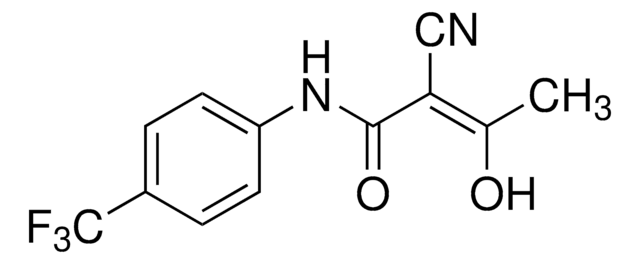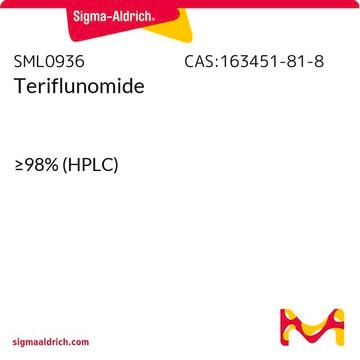1357056
USP
Leflunomide Related Compound B
United States Pharmacopeia (USP) Reference Standard
Sinónimos:
2-Cyano-3-hydroxy-N-(4-trifluoromethylphenyl)crotonamide
About This Item
Productos recomendados
grade
pharmaceutical primary standard
API family
leflunomide
manufacturer/tradename
USP
application(s)
pharmaceutical (small molecule)
format
neat
SMILES string
O=C(/C(C#N)=C(O)/C)NC1=CC=C(C(F)(F)F)C=C1
InChI
1S/C12H9F3N2O2/c1-7(18)10(6-16)11(19)17-9-4-2-8(3-5-9)12(13,14)15/h2-5,18H,1H3,(H,17,19)/b10-7-
InChI key
UTNUDOFZCWSZMS-YFHOEESVSA-N
Gene Information
human ... DHODH(1723)
¿Está buscando productos similares? Visita Guía de comparación de productos
General description
Analysis Note
Other Notes
related product
Certificados de análisis (COA)
Busque Certificados de análisis (COA) introduciendo el número de lote del producto. Los números de lote se encuentran en la etiqueta del producto después de las palabras «Lot» o «Batch»
¿Ya tiene este producto?
Encuentre la documentación para los productos que ha comprado recientemente en la Biblioteca de documentos.
Nuestro equipo de científicos tiene experiencia en todas las áreas de investigación: Ciencias de la vida, Ciencia de los materiales, Síntesis química, Cromatografía, Analítica y muchas otras.
Póngase en contacto con el Servicio técnico





